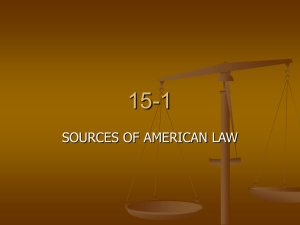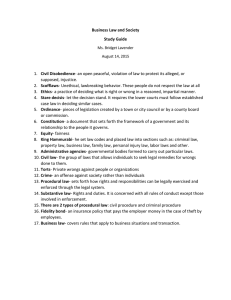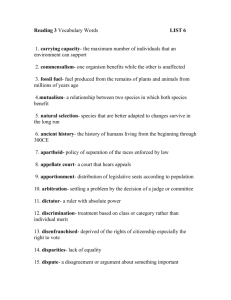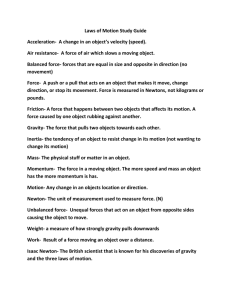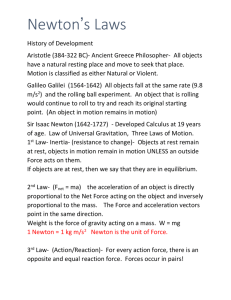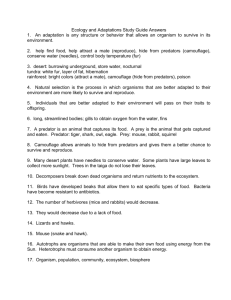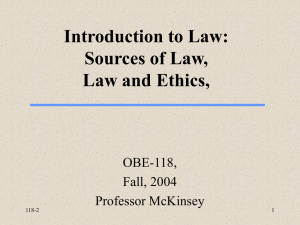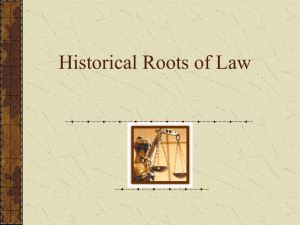BL - Personal.psu.edu
advertisement
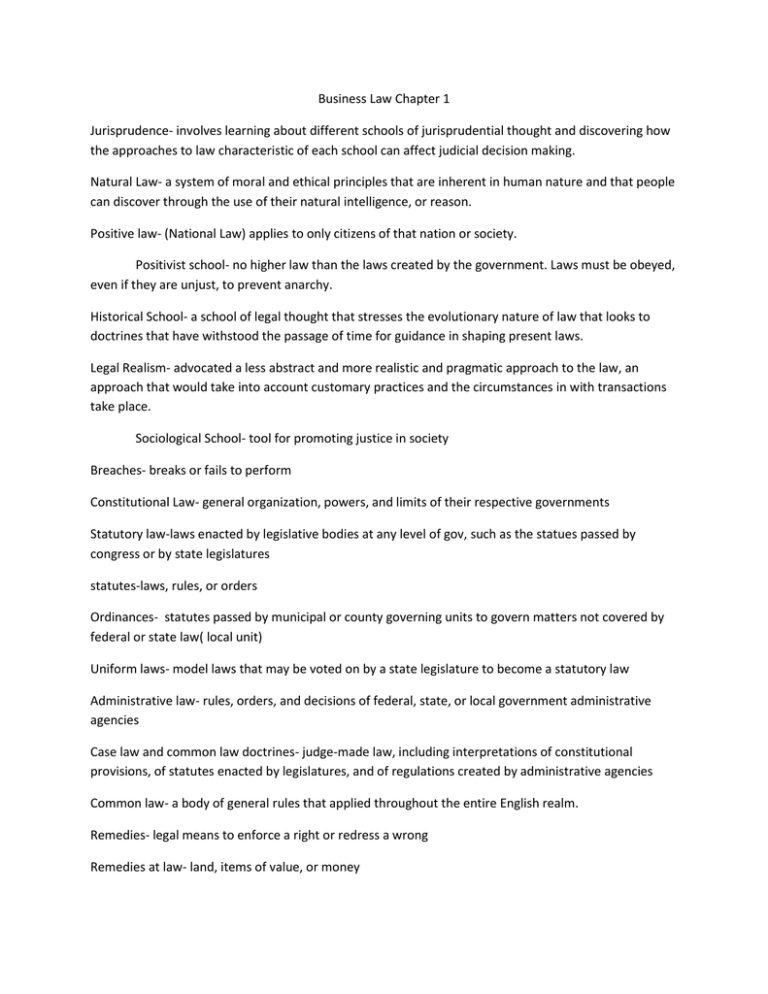
Business Law Chapter 1 Jurisprudence- involves learning about different schools of jurisprudential thought and discovering how the approaches to law characteristic of each school can affect judicial decision making. Natural Law- a system of moral and ethical principles that are inherent in human nature and that people can discover through the use of their natural intelligence, or reason. Positive law- (National Law) applies to only citizens of that nation or society. Positivist school- no higher law than the laws created by the government. Laws must be obeyed, even if they are unjust, to prevent anarchy. Historical School- a school of legal thought that stresses the evolutionary nature of law that looks to doctrines that have withstood the passage of time for guidance in shaping present laws. Legal Realism- advocated a less abstract and more realistic and pragmatic approach to the law, an approach that would take into account customary practices and the circumstances in with transactions take place. Sociological School- tool for promoting justice in society Breaches- breaks or fails to perform Constitutional Law- general organization, powers, and limits of their respective governments Statutory law-laws enacted by legislative bodies at any level of gov, such as the statues passed by congress or by state legislatures statutes-laws, rules, or orders Ordinances- statutes passed by municipal or county governing units to govern matters not covered by federal or state law( local unit) Uniform laws- model laws that may be voted on by a state legislature to become a statutory law Administrative law- rules, orders, and decisions of federal, state, or local government administrative agencies Case law and common law doctrines- judge-made law, including interpretations of constitutional provisions, of statutes enacted by legislatures, and of regulations created by administrative agencies Common law- a body of general rules that applied throughout the entire English realm. Remedies- legal means to enforce a right or redress a wrong Remedies at law- land, items of value, or money Courts of law- courts that awarded remedies at law Chancellor- adviser of the king Courts of equity-formal chancery courts Remedies in equity-
